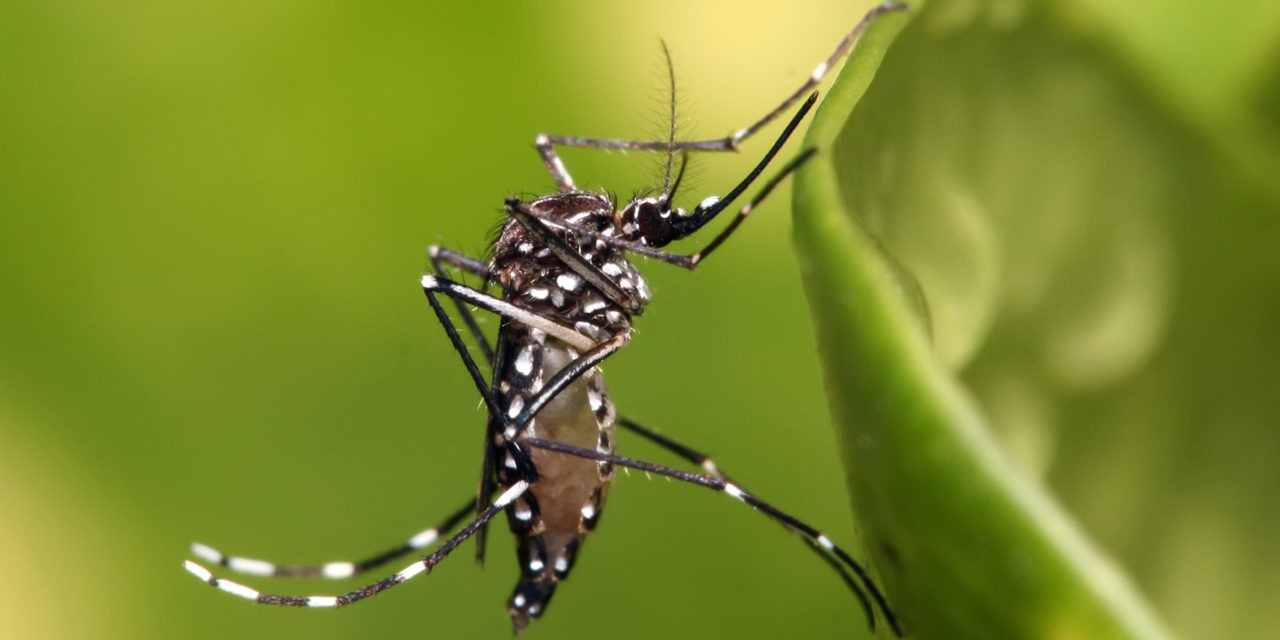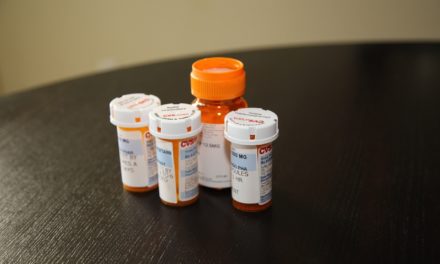INDIO — An invasive mosquito species, not native to California, has been steadily infiltrating the Coachella Valley since it was first detected in 2016.
The Aedes aegypti is a black and white, day-biting mosquito capable of transmitting serious viruses including chikungunya, dengue, and Zika. While there have been no reports of mosquitoes transmitting these viruses in the Coachella Valley, the risk of future transmission is a real concern.
“Local transmission can begin if an infected person returns to California after traveling to an area where there is active transmission of these viruses,” Tammy Gordon, Public Information Officer for the Coachella Valley Mosquito and Vector Control District, said in a prepared statement. “If that person is then bitten by the Aedes aegypti here, that mosquito can then infect local residents.”
Despite the District staff conducting thousands of door-to-door inspections, treating properties, and distributing mosquito-prevention materials, population numbers continue to increase in some areas of the Valley. This has prompted the District to schedule treatments in Cathedral City and Palm Desert using specialized equipment targeting two stages of a mosquito’s life cycle.
Truck-mounted applications are scheduled every Saturday beginning Sept. 21 through Oct. 12, 2019. Applications are planned between 2 a.m. and 6 a.m., weather permitting, but could take place anytime between 8 p.m. (the evening prior) and 8 a.m.
Cathedral City: The applications are scheduled within the boundaries of Ramon Road, Rancho Vista Drive, Dinah Shore Drive, and Shifting Sands Trail.
Palm Desert: The applications are scheduled within the boundaries of Shadow Mountain Drive, Portola Avenue, Haystack Road, and Amir Drive/Burroweed Lane.
A larvicide application kills immature mosquitoes by dispensing small aerosol droplets in the mosquito’s breeding source, standing water. The product being used, Altosid Liquid Larvicide, is a public health pesticide and works as a mosquito growth regulator by preventing immature mosquitoes from becoming biting adults.
The adult mosquito control product, DeltaGard, is a public health pesticide known for working quickly to kill targeted adult mosquitoes and then biodegrades quickly in the presence of sunlight. Treatments are made using special equipment mounted to trucks and in an ultra-low volume (ULV) application which dispenses very fine aerosol droplets that kill flying mosquitoes on contact.
Both products are registered with the U.S. Environmental Protection Agency and the California Department of Pesticide Regulation. Products are applied according to label instructions by trained and certified technicians and are made at very low dosages, which ensure minimal risk to people and pets.
Residents may choose to stay indoors during and for 30 minutes following the application as a best practice to reduce exposure. After going back outside, residents should not see any visual signs of the treatment on their property.
Mosquito-borne virus activity among the Coachella Valley’s native Culex mosquitoes remains high. So far this year, 579 mosquito samples have tested positive for West Nile virus (509 samples) or St. Louis encephalitis virus (81 samples). Eleven samples tested positive for both viruses. District staff continues enhanced mosquito surveillance and control as necessary to reduce the number of mosquitoes and the risk of virus transmission to people.
It is important for everyone in the Valley to do everything they can to minimize standing water where mosquitoes breed. We appreciate people’s help keeping their own backyards free of mosquito-breeding sites by dumping and draining containers and making sure fountains and pools have working pumps.
Prevent mosquito bites:
- Avoid going outside in the hours around dawn and dusk when mosquitoes that can transmit West Nile virus and St. Louis encephalitis virus are most active.
- Wear EPA registered ingredients such as DEET, picaridin, oil of lemon eucalyptus, or IR3535 to exposed skin and/or clothing (as directed on the product label).
- Wear long-sleeve shirts, long pants, socks and shoes when mosquitoes are most active.
- Be sure window and door screens are in good repair to prevent mosquitoes from entering your home.
How you can help reduce mosquitoes around your home:
- Inspect yards for standing water sources and drain water that may have collected under potted plants, in bird baths, discarded tires, and any other items that could collect water.
- Check your rain gutters and lawn drains to make sure they aren’t holding water and debris.
- Clean and scrub bird baths and pet watering dishes weekly.
- Check and clean any new potted plant containers that you bring home because they may have eggs. Some eggs can remain viable in dry areas for months.
If you travel out of the Valley, it is especially important to be aware of Aedes mosquitoes and the viruses that they can carry. Protect yourself and your family from bug bites.
For more information on treatments and tips to protect yourself please contact District staff during regular office hours Monday-Friday, 7:30 a.m.-4:30 p.m. or visit the District’s website by clicking here. For emergency contact during the treatment, please call (760) 541-2057.
Image Sources
- Aedes aegypti: Wikipedia







